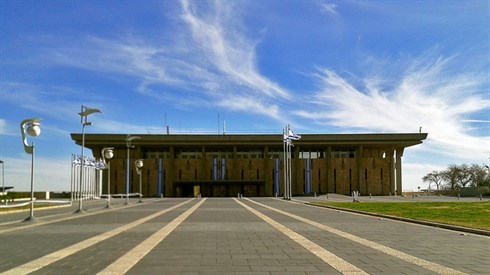- Halacha
- Gentile Cooking, Wine and Milk
8215
Question
According to a response on your website, most poskim maintain that cheese produced under Jewish supervision is kosher, like the opinion of the Rema.
According to this opinion, is one who consumes chalav stam permitted to eat gevina stam, assuming all ingredients are kosher?
Also, according to Shach, Gra, and Pri Chadash, who argue on the Rema, I understand that it is sufficient for the Jew to own the cheese at the time of its’ making. According to their opinion, is supervision also required? If not, is it enough for a Jew to have partial ownership in the cheese factory? Does he need to be a religious Jew?
Answer
According to the Igrot Moshe who permits milk of a non-Jew in a country were there is a government supervision that forbids mixing milk of impure animals, even though also according to him a scrupulous person should be stringent. Nevertheless, he writes, in the case of cheese that a Jew was present while it was made, even though he was not present during the milking, also a scrupulous person does not have to be stringent, and it is enough to have supervision while it is made. But if there was no supervision at all while the cheese was made it is forbidden according to all opinions because of the decree of our Sages.
[אג"מ יו"ד ג סימן טז, ועיין נושא זה בהרחבה בספר פתחי הלכה קיצור הלכות כשרות פרק ו].
It is important to note that what we wrote is in regard to hard cheeses, but regarding soft cheeses the Igrot Moshe is uncertain whether it is included in the prohibition of Gevinat Akum (cheese of a non-Jew) and requires supervision of a Jew while it is being made, or perhaps it is not included in the prohibition of Gevinot Akum and does not require the presence of a Jew while it is made. He writes that it is good to be stringent, but one does not have to reprove those who are lenient. Rabbi Forst notes in his Sefer Pitchei Halachah regarding soft cheeses of non-Jews that are marketed with a Kosher certification, that a Jew is not present while it is made.
[אג"מ יו"ד א סו"ס נ, ויו"ד ב סימן מח. ופתחי הלכה פרק ו הערה כא].
In Sefer Hakashrut of Rabbi Fuchs he adds that today one should make sure to use only certified strictly kosher cheeses due to the concern that the ingredient casein which is produced from milk may not be kosher, and due to other concerns.
[הכשרות פרק ח סעיף ט הערה ס].
According to the Poskim that require Jewish ownership on the cheese or alternatively to participate in its making, when a Jew is the owner of the cheese it is not included in the prohibition of Gevinat Akum anymore and does not require supervision at all. It is enough if the Jew has partial ownership.
[ש"ך יו"ד סימן קטו ס"ק כ].
Regarding our attitude to a Jew who violates Shabbos publicly whether he is like a gentile or like a Jew regarding the decree on milk and cheese of a non-Jew, the Igrot Moshe writes, that it seems that he was not included in the decree, and therefore we should not prohibit it in a place where there is no practical concern that he might mix the milk of a kosher animal with that of an impure animal.
[אג"מ יו"ד א סימן מו, ויו"ד ב סימן מז, וספר הכשרות פרק ח סעיף י].
There is a discussion among the Poskim whether milk that is milked by a gentile in a farm owned by a Jew who violates Shabbat publicly is permitted. And it is best to be stringent when possible.
[ספר הכשרות שם הערה ל].

Kidush for future gerim
Rabbi Elchanan Lewis | 27 Tevet 5766

Keeping Bread Kosher
Rabbi Chaim Tabasky | 29 Iyyar 5764

Pat Palter
Rabbi Yoel Lieberman | Cheshvan 25, 5778

Kashrut
Rabbi Elchanan Lewis | Elul 3, 5769

Sefira observance on Yom Haatzmaut
Rabbi Chaim Tabasky | 7 Iyyar 5766

Stitches a chatzizah for the mikvah?
Rabbi David Sperling | Cheshvan 1, 5780

Music on Yom Hatzmauut when celebrated not on the day of the
Rabbi Ari Shvat | Shevat 26, 5772

Trimming the beard
Rabbi David Sperling | Iyyar 16, 5782

Gentile inferiority due to genetics.
Rabbi Yoel Lieberman | Adar 6, 5785

coffee creamer
Rabbi Ari Shvat | Adar 25, 5785

Is the Shulchan Hatahor (Komarno) acceptable for halacha?
Rabbi Ari Shvat | Adar 25, 5785




